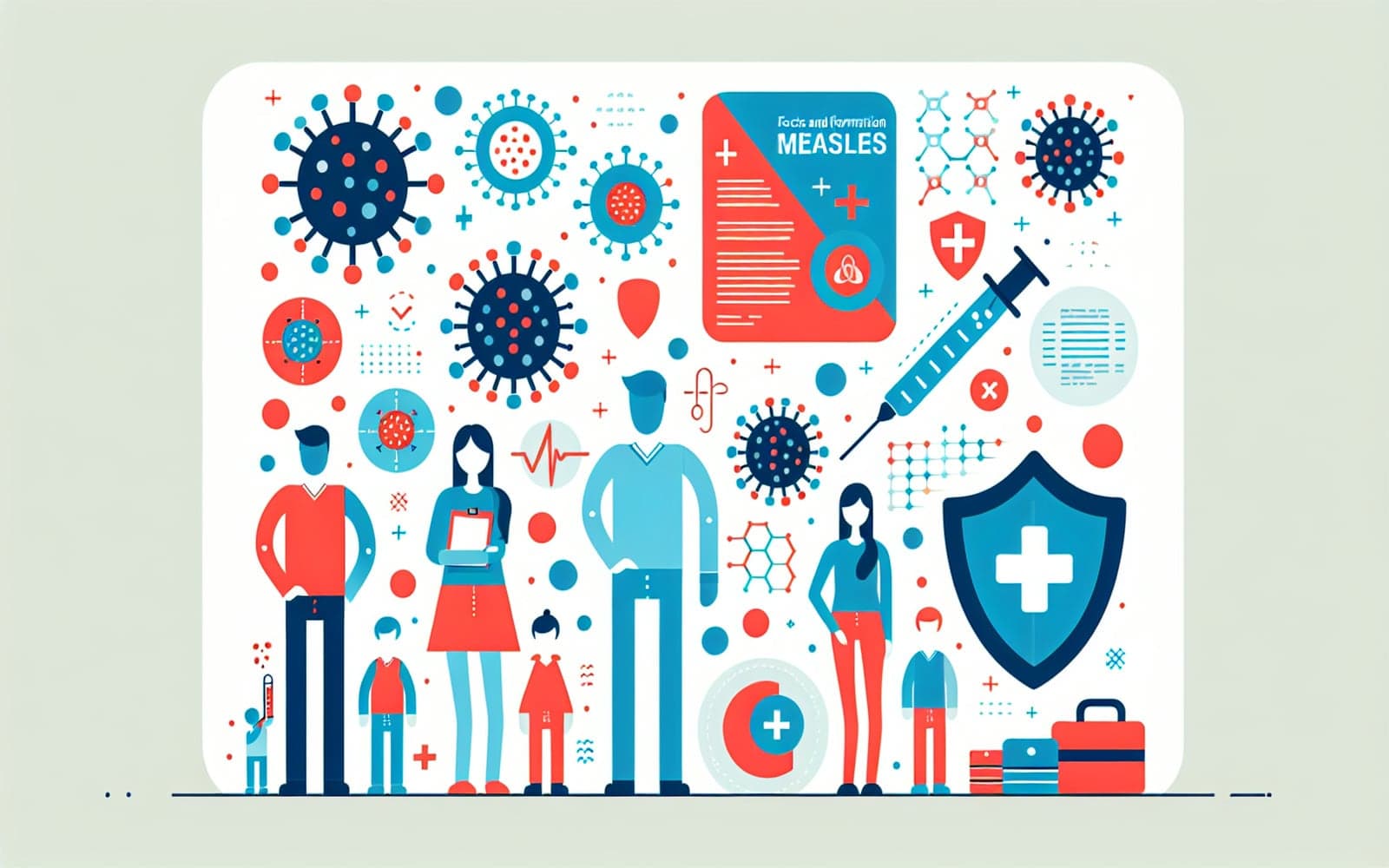Measles: What You Need to Know About This Highly Contagious Virus
Published: Apr 18, 2024
Measles is a highly infectious viral illness that can spread rapidly. Understanding its symptoms, complications, and prevention is crucial for public health.
Contents
Recognizing Measles Symptoms
Measles typically begins with fever, cough, runny nose, and red eyes. A distinctive red rash appears 3-5 days after initial symptoms, starting on the face and spreading downward. Look for tiny white spots inside the mouth called Koplik spots, which are unique to measles.
Potential Complications
While many recover without issues, measles can lead to serious complications. These may include pneumonia, encephalitis (brain swelling), and even death in severe cases. Young children, pregnant women, and those with weakened immune systems are at higher risk for complications.

Preventing Measles
Vaccination is the most effective way to prevent measles. The MMR (measles, mumps, rubella) vaccine is typically given in two doses during childhood. High vaccination rates in a community create 'herd immunity', protecting even those who can't be vaccinated.
Frequently Asked Questions
Extremely - it can spread through the air and infect 90% of unvaccinated people exposed.
It's rare, but possible. Two doses of the vaccine are about 97% effective.
From 4 days before the rash appears until 4 days after.
Key Takeaways
Measles is serious but preventable - vaccination and awareness are our best defenses against outbreaks.
Concerned about measles or your vaccination status? Chat with Doctronic to learn more about protecting yourself and your community.Related Articles
References
Centers for Disease Control and Prevention. Measles (Rubeola). https://www.cdc.gov/measles/index.html
World Health Organization. Measles. https://www.who.int/news-room/fact-sheets/detail/measles
Always discuss health information with your healthcare provider.

